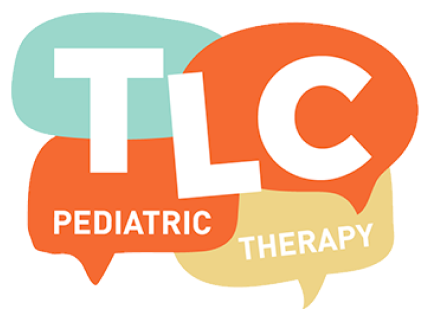
The importance of play cannot be underestimated while your child is growing and learning. Play develops as children develop, learn new skills like language and motor skills. Children watch, listen, explore, imitate, and eventually create language to communicate with you and their environment.
At TLC Speech Therapy, our therapists utilize a variety of techniques, including play, to engage with and provide treatment to children and adolescents with speech and communication disorders.
Why is play important?
- Play lays the foundation for literacy. Through play children learn to make and practise new sounds. They try out new vocabulary, on their own or with friends, and exercise their imagination through storytelling.
- Play is learning. Play nurtures development and fulfils a baby’s inborn need to learn. Play takes many forms, from shaking a rattle to peek-a-boo to hide-and-seek. Play can be done by a child alone, with another child, in a group or with an adult.
- Play encourages adults to communicate with the children in their lives. Adults support play by giving children opportunities to play, and by knowing when to intervene, and when not to intervene.
- Play gives children the chance to be spontaneous. You may think your child should be rolling the truck on the ground but that doesn’t mean that truck is not equally useful as a stacking toy.
- Play gives children choice. Having enough toys or activities to choose from will allow children to express themselves.
- Play gives children space. To practise physical movement, balance and to test their own limits.
- Play gives adults the chance to learn how to play again. One of the most challenging parts of play is incorporating yourself in it.
- Play allows adults to learn their child’s body language. Knowing when you should incorporate yourself in your child’s play is key.
- Play teaches adults patience and understanding. If you do choose to join in your child’s play make sure that you do not try to take it over and force incorporation of your ultimate learning objectives into their play. Structured adult-led activities have their time and place but remember to allow for time for children to control and decide their own play.
- Play is fun. Learning to play well, both by themselves and with others, sets children up to be contented and sociable.
(Source: https://literacytrust.org.uk/resources/10-reasons-why-play-important/)
Here are a few resources to engage your child in the act of play:
- Activities for gross and fine motor skills: https://www.verywellfamily.com/gross-motor-skills-for-preschoolers-1257160
- Loose parts play: https://nurturestore.co.uk/free-play-with-loose-parts
- Grocery Store play: https://www.notimeforflashcards.com/2009/01/run-erands-at-home.html
- Play activities for 12-24 months: https://www.zerotothree.org/resources/167-play-activities-for-12-to-24-months





